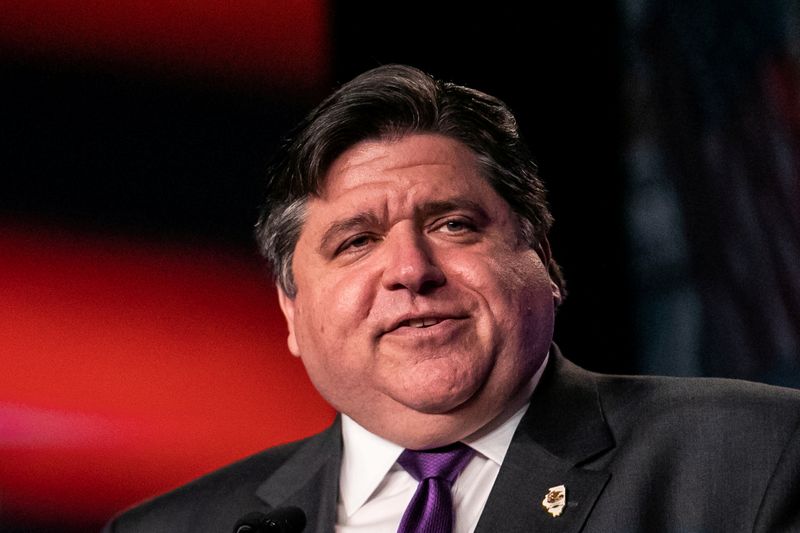
CHICAGO (Reuters) – Illinois Governor J.B. Pritzker proposed a $42 billion fiscal 2021 general funds budget on Wednesday that includes $1.4 billion in new revenue from a change in the state’s income tax rate structure that may or may not be approved by voters in November.
The Democratic governor’s second budget since taking office in January 2019 would put that revenue in reserve pending the outcome of the vote on a constitutional amendment to replace the state’s current flat income tax rate with graduated rates starting Jan. 1.
Pritzker has championed the move as a way to raise $3.6 billion a year for the financially challenged state by taxing high earners more.
“Even if the graduated income tax does not take effect, our budget nevertheless continues our progress, although at a much slower pace than I think we require to get ourselves out of the hole previous administrations have dug for us,” he said in his budget address.
Illinois has the lowest credit ratings among states at a notch or two above junk due to its $137.3 billion unfunded pension liability and chronic structural budget deficit.
Its backlog of unpaid bills stood at $7.3 billion on Wednesday. Pritzker is recommending the Democrat-controlled legislature lower the maximum 12% late payment penalty on overdue bills.
The spending plan for the fiscal year that begins July 1 includes $8.6 billion for pensions and an additional $100 million contribution if the income tax amendment passes. Senior administration officials said there were no plans to sell pension bonds or lengthen the pension funding schedule. Meanwhile, a report from a task force exploring boosting pension funding through state asset transfers is expected soon.
The governor proposed allocating as much as $100 million to the state’s budget stabilization fund, which contained just $3.6 million at the end of fiscal 2019, although $50 million is contingent on the constitutional amendment’s passage.
While Democratic legislative leaders were generally positive about Pritzker’s budget, Republicans were wary about the potential $1.4 billion revenue gain.
“This budget is trying to sell a tax increase,” Senate Republican Leader Bill Brady said in a public television interview.
Some of the governor’s proposed increases in education spending, including $150 million of a $350 million boost for the state’s elementary and secondary school funding formula, would depend on adoption of a new tax structure.
Fusion Media or anyone involved with Fusion Media will not accept any liability for loss or damage as a result of reliance on the information including data, quotes, charts and buy/sell signals contained within this website. Please be fully informed regarding the risks and costs associated with trading the financial markets, it is one of the riskiest investment forms possible.



